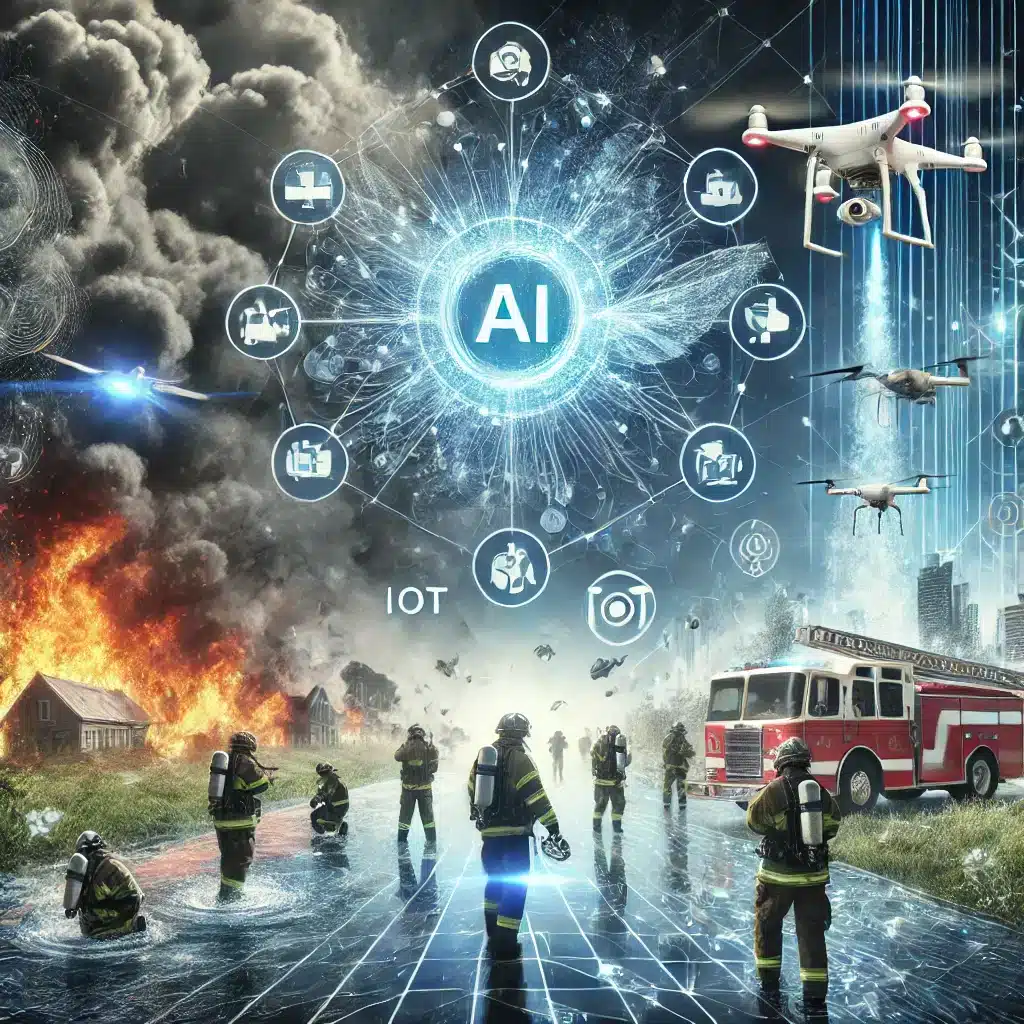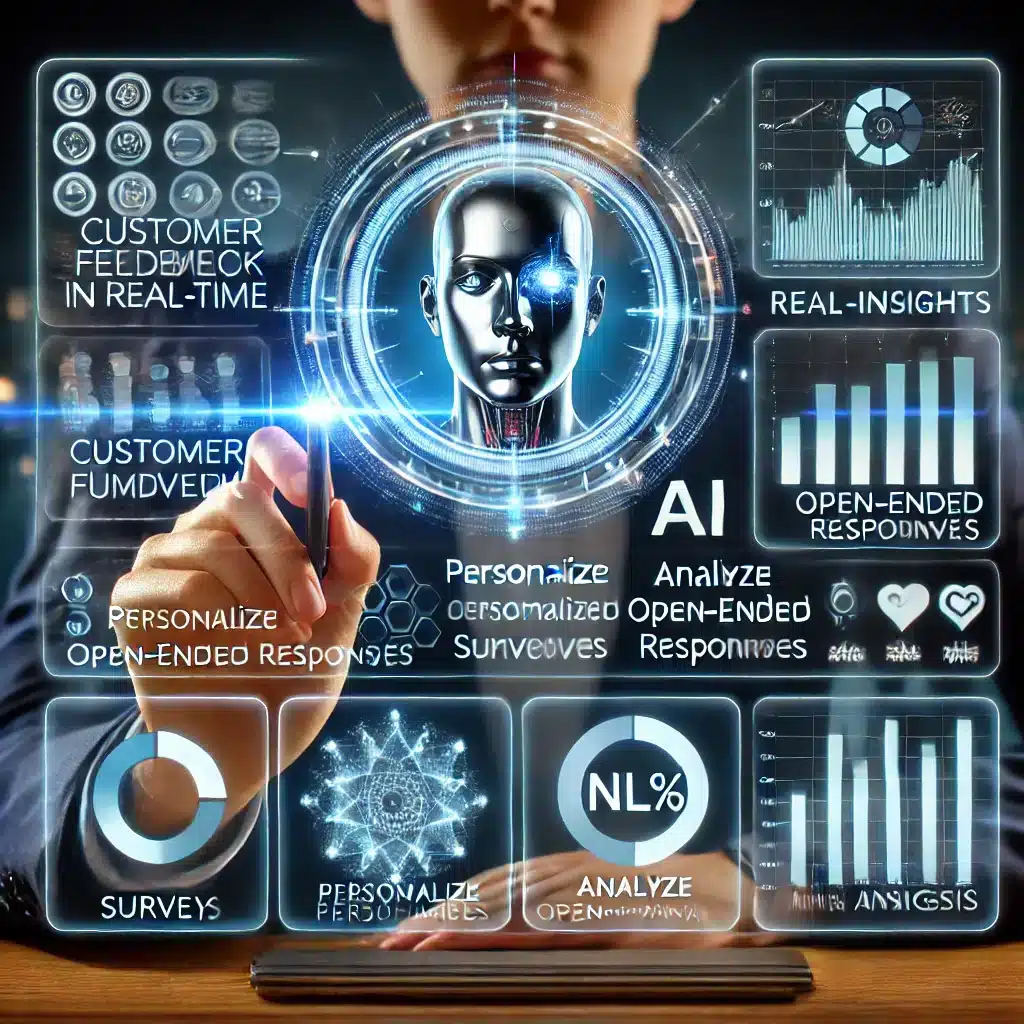As technology continues to advance, artificial intelligence (AI) has become a significant force driving innovation across various industries. In the world of business-to-business (B2B) sales, AI is not just a buzzword but a powerful tool that is reshaping how companies approach customer engagement, lead generation, sales processes, and more. The integration of AI in B2B sales is no longer a futuristic concept but a present reality that is rapidly evolving. This blog explores the emerging trends and predictions for the future of AI in B2B sales, offering insights into how businesses can harness this technology to stay competitive in a dynamic marketplace.
The Current Landscape of AI in B2B Sales
Before diving into future trends, it’s essential to understand the current role of AI in B2B sales. Today, AI is primarily used to automate repetitive tasks, analyze large datasets, and provide actionable insights that help sales teams make informed decisions. Some of the common applications of AI in B2B sales include:
- Lead Scoring and Prioritization: AI algorithms analyze data from various sources, such as CRM systems, social media, and website analytics, to score leads based on their likelihood to convert. This helps sales teams prioritize their efforts on high-potential prospects, improving efficiency and conversion rates.
- Sales Forecasting: AI-powered tools analyze historical sales data, market trends, and other relevant factors to provide accurate sales forecasts. This enables businesses to plan better and allocate resources more effectively.
- Personalized Marketing and Sales Outreach: AI can analyze customer behavior and preferences to create personalized marketing campaigns and sales pitches. By delivering tailored content and offers, businesses can increase engagement and conversion rates.
- Chatbots and Virtual Assistants: AI-driven chatbots and virtual assistants are becoming increasingly common in B2B sales. These tools can handle customer inquiries, provide product recommendations, and even assist with the purchasing process, all without human intervention.
- Customer Segmentation: AI helps businesses segment their customer base more effectively by analyzing vast amounts of data. This enables more targeted marketing and sales strategies, ultimately leading to higher ROI.
Emerging Trends in AI for B2B Sales
As AI technology continues to evolve, new trends are emerging that will further transform the B2B sales landscape. Here are some of the most promising trends to watch:
Hyper-Personalization Through AI
Personalization has always been a key factor in successful B2B sales, but AI is taking it to the next level. Hyper-personalization involves using AI to analyze individual customer data in real-time, enabling businesses to deliver highly personalized experiences at every touchpoint. This could include customized content, personalized product recommendations, and even tailored pricing strategies based on a customer’s unique needs and behaviors.
For example, an AI-powered system might analyze a prospect’s recent interactions with a company’s website, social media channels, and email campaigns. Based on this data, the system could automatically generate a personalized sales pitch that addresses the prospect’s specific pain points and interests. As AI continues to improve, the level of personalization in B2B sales will become increasingly sophisticated, leading to more meaningful customer relationships and higher conversion rates.
Predictive Analytics and Decision-Making
Predictive analytics is another area where AI is making a significant impact on B2B sales. By analyzing historical data and identifying patterns, AI can predict future outcomes with remarkable accuracy. This capability is invaluable for sales teams, as it allows them to make data-driven decisions and proactively address potential challenges.
For instance, AI-powered predictive analytics can help sales teams identify which leads are most likely to convert, when a customer might be ready to make a purchase, and what factors might influence a decision. This enables sales teams to focus their efforts on the most promising opportunities, optimize their sales strategies, and ultimately drive better results.
In the future, we can expect predictive analytics to become even more integral to B2B sales, with AI providing real-time insights that enable businesses to stay ahead of the competition.
AI-Powered Sales Enablement
Sales enablement is all about providing sales teams with the tools, resources, and information they need to sell more effectively. AI is playing a growing role in this area by automating various aspects of the sales process and providing valuable insights that help sales reps close deals faster.
One of the key trends in AI-powered sales enablement is the use of AI to create and deliver personalized sales content. AI can analyze a prospect’s behavior and preferences to generate content that is tailored to their specific needs. This could include personalized case studies, product demos, and sales presentations that resonate with the prospect and increase the likelihood of a sale.
Additionally, AI can be used to automate training and onboarding for new sales reps. By analyzing the performance of top salespeople, AI can identify the skills and knowledge that contribute to success and create personalized training programs for new hires. This not only accelerates the onboarding process but also ensures that new sales reps are equipped with the tools they need to succeed.
AI-Driven Account-Based Marketing (ABM)
Account-Based Marketing (ABM) is a strategic approach to B2B sales that focuses on targeting high-value accounts with personalized marketing and sales efforts. AI is revolutionizing ABM by enabling businesses to identify and target the most promising accounts with greater precision.
AI-driven ABM involves using AI to analyze data from multiple sources, such as CRM systems, social media, and third-party data providers, to identify high-value accounts and create personalized marketing campaigns. This allows businesses to focus their efforts on the accounts that are most likely to generate significant revenue, rather than spreading their resources too thin.
In the future, we can expect AI-driven ABM to become even more sophisticated, with AI-powered tools providing real-time insights into account behavior, preferences, and buying intent. This will enable businesses to create highly targeted campaigns that drive engagement and conversion rates.
Conversational AI and Sales Automation
Conversational AI refers to AI-powered tools that enable natural language interactions between humans and machines. In the context of B2B sales, conversational AI is being used to automate various aspects of the sales process, such as lead generation, customer engagement, and follow-up.
For example, AI-powered chatbots can engage with prospects on a company’s website, answer their questions, and guide them through the sales process. These chatbots can also collect valuable data on prospects’ needs and preferences, which can be used to personalize future interactions.
Additionally, conversational AI can be used to automate routine tasks, such as scheduling meetings, sending follow-up emails, and updating CRM systems. This not only frees up time for sales reps to focus on higher-value activities but also ensures that no leads fall through the cracks.
As conversational AI technology continues to improve, we can expect it to play an even larger role in B2B sales, enabling businesses to scale their sales efforts and provide a seamless customer experience.
Ethical AI and Responsible Data Use
As AI becomes more prevalent in B2B sales, there is a growing need to address the ethical implications of using AI and data. Businesses must ensure that their AI systems are transparent, fair, and respectful of customer privacy. This includes being transparent about how data is collected and used, as well as implementing safeguards to prevent biased or discriminatory outcomes.
In the future, we can expect to see more emphasis on ethical AI in B2B sales, with businesses adopting best practices for responsible data use and AI governance. This will be essential for building trust with customers and maintaining a positive brand reputation.

Predictions for the Future of AI in B2B Sales
Looking ahead, the future of AI in B2B sales is bright, with several key predictions that will shape the industry in the coming years:
- AI-Driven Hyper-Automation: The next phase of AI in B2B sales will involve hyper-automation, where AI-powered tools automate not just individual tasks but entire workflows. This will enable businesses to achieve unprecedented levels of efficiency and scalability.
- AI-Augmented Sales Teams: Rather than replacing human sales reps, AI will augment their capabilities by providing real-time insights, personalized recommendations, and automated support. This will empower sales teams to work more effectively and close deals faster.
- AI-Powered Buyer Intent Analysis: AI will play a crucial role in analyzing buyer intent, enabling businesses to identify when a prospect is ready to make a purchase and what factors are influencing their decision. This will lead to more targeted and timely sales efforts.
- Seamless Integration of AI Across the Sales Tech Stack: AI will become seamlessly integrated across the entire sales tech stack, from CRM systems to marketing automation tools. This will enable businesses to create a unified and data-driven approach to B2B sales.
- Increased Focus on AI Ethics and Governance: As AI continues to play a larger role in B2B sales, there will be an increased focus on AI ethics and governance. Businesses will need to adopt best practices for responsible AI use and ensure that their AI systems are transparent, fair, and aligned with customer expectations.
Conclusion
The future of AI in B2B sales is full of exciting possibilities, with emerging trends and predictions that promise to transform the way businesses engage with customers, generate leads, and close deals. From hyper-personalization and predictive analytics to AI-powered sales enablement and conversational AI, the potential applications of AI in B2B sales are vast and varied.
As businesses continue to adopt and integrate AI into their sales strategies, they will be better equipped to navigate the complexities of the modern sales landscape and stay ahead of the competition. However, it’s also essential for businesses to approach AI with a focus on ethics and responsible data use, ensuring that their AI systems are transparent, fair, and respectful of customer privacy.
By embracing the power of AI in B2B sales and staying attuned to emerging trends, businesses can position themselves for long-term success in a rapidly evolving market. The integration of AI will not only enhance efficiency and productivity but also enable sales teams to build deeper, more meaningful relationships with their customers.



